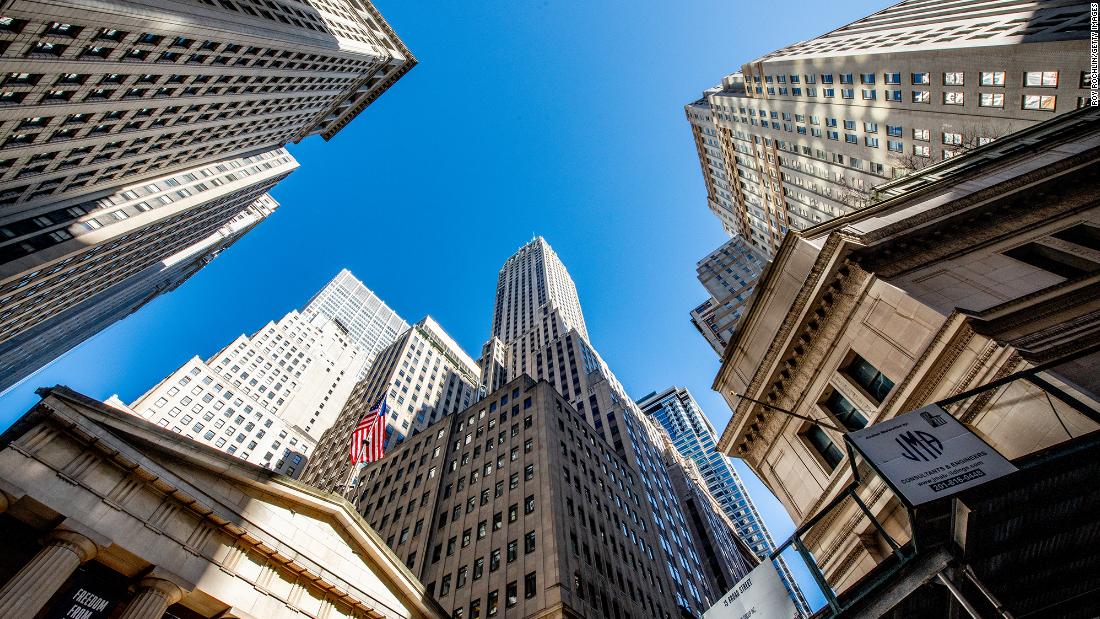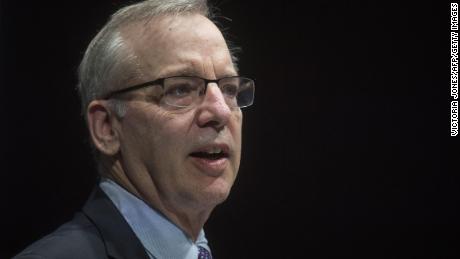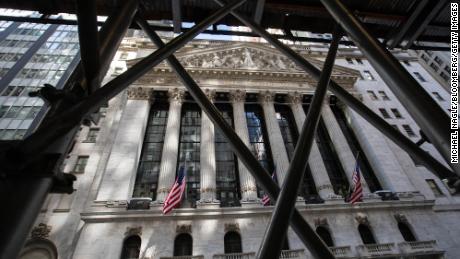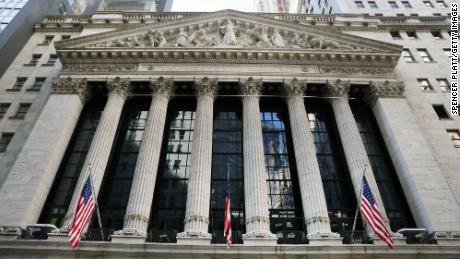Suspense builds on Wall Street over expiring relief for big banks
“The Fed should be concerned about a taper tantrum 2.0,” KBW analyst Brian Kleinhanzl wrote in a note to clients this week.
Democratic Senator Sherrod Brown, the chairman of the Senate Banking Committee, downplayed concerns about the market fallout and said the focus should be on keeping the banking system safe.
“We should be moving past making decisions based on the stock market going up,” Brown told CNN Business on Thursday.
“We have strong capital requirements to make sure we don’t have a situation where banks have to be bailed out like they were a decade ago,” he added. “We can’t, as a nation, afford for that to happen again.”
Putting out fires on Wall Street
At issue is a buffer known as the supplementary leverage ratio, or SLR, which requires the biggest US banks to hold capital of at least 5% of total assets on — and off — their balance sheets.
The goal is to prevent a repeat of 2008, when overleveraged major banks nearly collapsed the entire system.
The Fed had several goals: First, the move gave banks much more lending firepower at a time when consumers and businesses were facing a serious crisis. Second, the Fed wanted to put out a fire in the Treasury market, where trading uncharacteristically seized up.
“Liquidity conditions in Treasury markets have deteriorated rapidly,” the Fed said in unusually stark language at the time, adding that the relief would “ease strains” in that market.
The Fed didn’t want to punish banks for the fact that their balance sheets were swelling during the pandemic. Not only were customers depositing stimulus checks, but small businesses received an influx of forgivable loans and others just decided to sit on more cash.
But some regulators opposed the temporary relief.
Fed debates major decision
“It is past time that your agencies stop prioritizing the wishes of Wall Street over the public good,” Waters wrote.
Brown, the Senate Banking chairman, echoed that sentiment. He said US financial regulators nominated by the Trump administration are “traditionally pro-bank regulators,” other than Fed chief Jerome Powell, whom he called “more independent and fair-minded.”
“I’m they know the country has moved to a different place than when they were appointed,” Brown said, “and maybe they’ll do the right thing.”
For its part, the Fed hasn’t tipped its hand.
“We actually haven’t made a decision of what to do,” Powell told lawmakers during a hearing in late February. “It is something we’re in the middle of thinking about right now.”
If it’s not extended banks could have to slow their intake of deposits, stop buying Treasuries or raise capital (or a combination of these steps) to meet the leverage rules.
“This adjustment for cash and Treasury should either be made permanent, or at a minimum, be extended,” Jennifer Piepszak, JPMorgan’s chief financial officer, said during an earnings call in January.
The Fed doesn’t want to rock the boat
The state of the financial markets could be a deciding factor.
And US stocks tumbled recently after Treasury yields climbed uncomfortably high for investors addicted to rock-bottom rates.
If banks stop buying Treasuries, that may be a problem because it could cause rates to rise even higher. That will in turn create more competition for stocks.
“The Fed might be making a regulatory decision not based on the capital need for a waiver or not…but on the need to have a big buyer of US Treasuries,” Peter Boockvar, chief investment officer at Bleakley Advisory Group, wrote in a note to clients this week.
![]()








